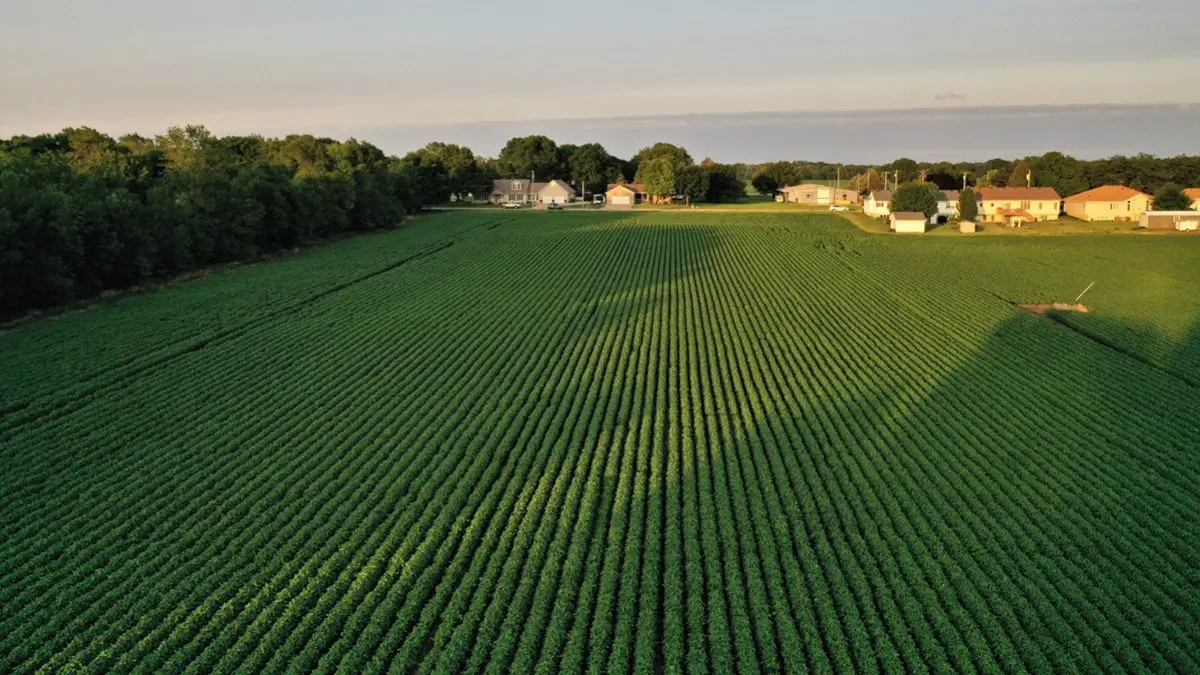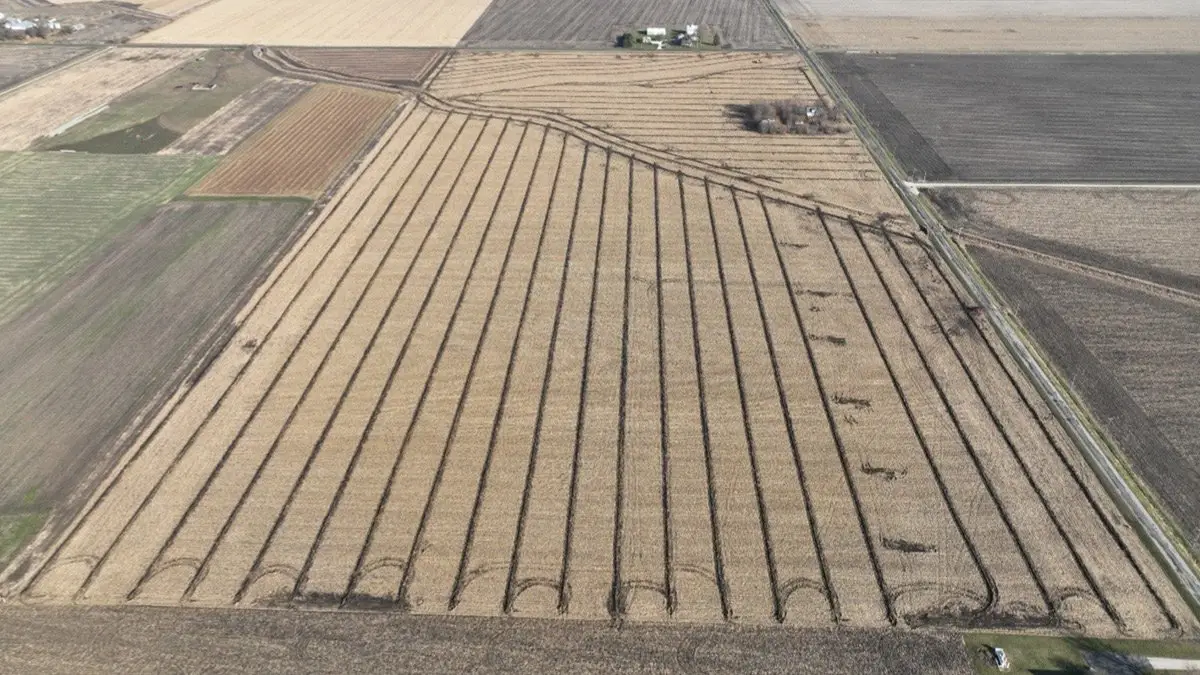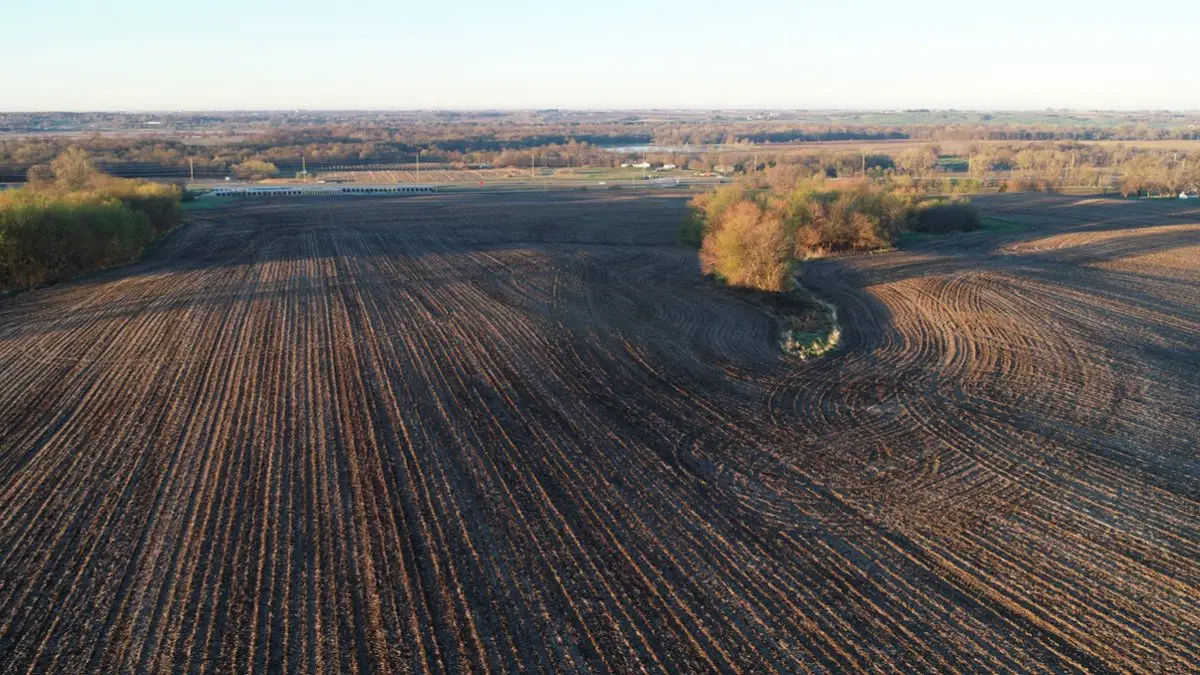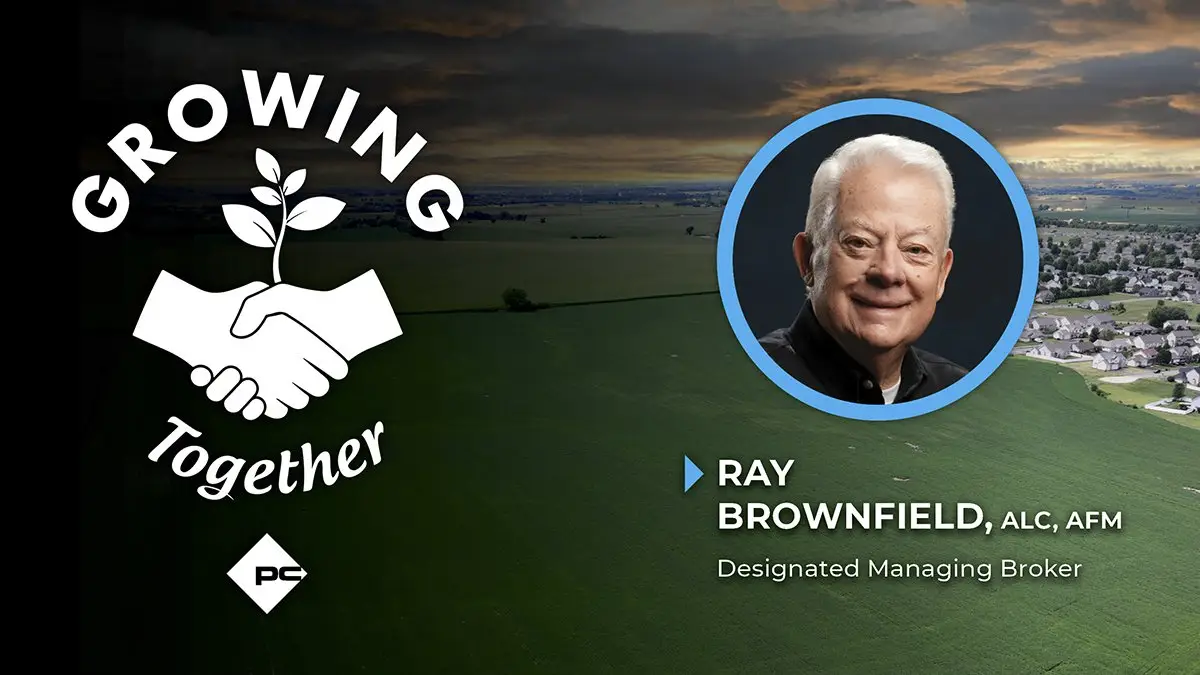I was raised outside Boulder, Colorado, near the mountains but far removed from large-scale production agriculture. Still, I developed a passion for the agricultural industry early on—riding horses and raising livestock on my family’s small acreage. That interest led me to Iowa State University to study Agricultural Business. Prior to attending, I had never visited the Midwest, and I entered college with limited knowledge of agriculture compared to my classmates—I even remember sheepishly asking my freshman year roommate what a “bushel” was during our Econ 101 class.
Over time, I grew deeply engaged in the field and took on internships that helped shape my understanding of agriculture across diverse geographies. I spent a summer back in Colorado, where I was exposed to irrigated crop production systems ranging from corn to vegetables, hemp, and alfalfa. I later interned with Peoples Company, where I learned about a different but equally important side of the industry—how land transacts. My coursework at Iowa State had centered primarily on Midwestern row crops, but between my study abroad experiences in South America and several internships, I began to appreciate the diverse spectrum of production systems that make up the agricultural industry.
By early 2025, I had been working full-time with Peoples Company’s Capital Markets team for 18 months. One of my favorite aspects of my role is the opportunity to analyze farmland assets across all major agricultural regions—from flat, black Iowa soils to the precision-leveled farms of the Delta, and the wheat fields and orchards of the Pacific Northwest.
It was during this time that I realized: we have offices in each of these key regions. I was renting my apartment in Des Moines and had the flexibility to move. So, shortly after the Land Investment Expo, I approached our President, Steve Bruere, with the idea of temporarily relocating to the West Coast offices. His response was immediate and enthusiastic: “I love it. I’m all for it. Wanna leave tomorrow?”
California: Entering the Nation’s Most Diverse Agricultural Market
Three weeks later, I packed my car and drove 25 hours to San Diego, home to Peoples Company’s Pacific West office. It was my first time in Southern California, and the shift from Iowa to one of the most populated and agriculturally diverse regions in the country was eye-opening. California, as the top agricultural state in the U.S., produces over 400 commodities. I was excited for the opportunity to learn more about such a broad and complex landscape.
Soon after my arrival, our team attended the California Chapter ASFMRA conference in Fresno, the heart of the Central Valley. I listened to current industry discussions around the Sustainable Groundwater Management Act (SGMA), low-water-use crop alternatives, and macroeconomic trends impacting California agriculture. These were topics I had some understanding of but hadn’t yet encountered in a practical setting. The ride back to San Diego was a great chance to soak up insight from teammates who’ve been in the business for decades and happily answered my many questions.
While agriculture isn’t immediately visible in San Diego proper, I took full advantage of the local environment—exploring hiking trails, spending time at the beach, and even learning how to surf. Outside of work, I also enjoyed reconnecting with friends who had moved to the area and meeting new people in the city.
Walla Walla: On-the-Ground Learning in a Production-Focused Community
After seven weeks in San Diego, I began the 20-hour drive north through the Central Valley and up to Walla Walla, Washington—a quieter, agriculturally focused community nestled in the Pacific Northwest. Having visited Walla Walla before, I had a better sense of what to expect. Its relaxed pace and close connection to agriculture offered a welcome contrast to the busy lifestyle of Southern California.
While based in the Agribusiness Trading Group office, I had the chance to accompany our brokers on field visits to farmland assets both on- and off-market. Crops like asparagus, onions, hops, and apples widened my knowledge base even more. In several cases, I was already familiar with the assets we looked at, as I had been evaluating them as acquisition opportunities for our Capital Markets clients. Seeing those deals progress on the ground added a valuable dimension to my understanding of cross-functional collaboration within Peoples Company.
Walla Walla’s reputation as a wine region was also a highlight. I visited several of the town’s 120+ tasting rooms and learned from industry professionals about the unique world of viticulture. Beyond its thriving wine industry, what stood out most about Walla Walla was the welcoming community, picturesque landscape, and high quality farmland surrounding it—it truly felt like a town from a movie set.
Reflections and Takeaways
After two months in Walla Walla, I drove back through Colorado and ultimately returned to Iowa—another 24 hours on the road and plenty of time to reflect. What began as an idea to learn more about our company’s offices and agricultural regions evolved into one of the most rewarding experiences of my early career. Here are my three biggest takeaways:
Strong professional and personal networks are invaluable - in any industry, and especially in agriculture.
Despite its scale and complexity, agriculture remains a close-knit, kitchen-table business - From California to Washington, I kept seeing the same themes, faces, and relationships pop up.
Peoples Company is a truly unique place to work - our national platform and collaborative culture empower employees to grow in meaningful ways.
At first, I thought the idea of working remotely across different time zones and offices might be challenging, but the support I received from my team was overwhelming. I’m incredibly grateful for the colleagues who hosted me, guided me, and never minded my endless stream of questions. Peoples Company’s national footprint means that a team member in the Midwest can quickly get local insight from a colleague in the Delta, California, or the Pacific Northwest with just a phone call—which is a tremendous asset for clients and professionals alike.
Now back in Iowa, I’m excited to bring new insights and regional expertise to our team, foster even more collaboration, and continue helping clients make informed decisions across the country. The travel’s over, but the returns on experience are just beginning.







